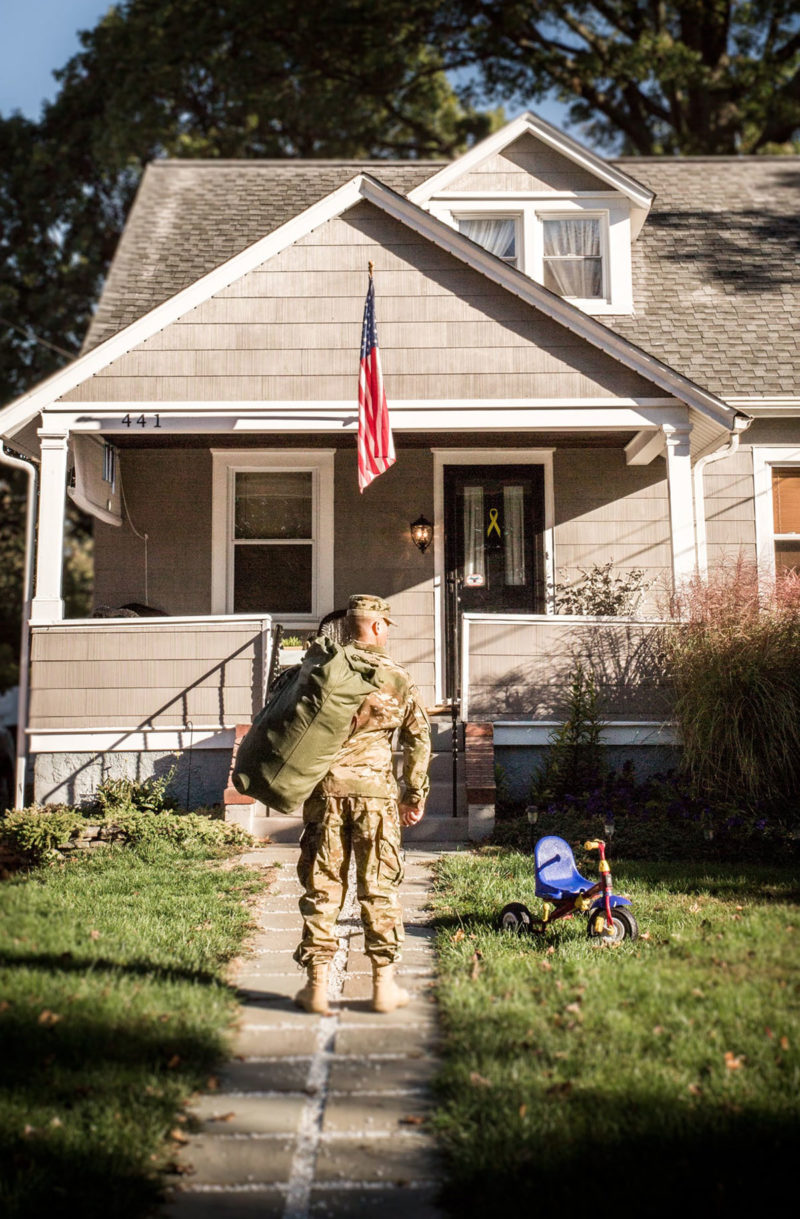Time for Careful Observation
Week Summary
How have you seen God go the extra mile for you and your family?
Military families deal with heavy reintegration issues like finances, behavior, guilt, confession, and grief. Observing more than the obvious can help you and your spouse navigate reintegration and identify when you need help. Ezra modeled emotionally paralyzing situations for us as he felt the negativity of bad news but did not stay there. Together we read how he took his feelings to God and how God went the extra mile for His people.
About This Journey
Reintegration is hard: it messes with rhythms and feels uncomfortable. “Reunited and Resilient” tells the story of how God stirred a king to change the trajectory of a nation. Follow along as God shows us how He can also stir your family’s hearts to reach for restoration as you journey toward reintegration following deployment.
This Week's Readings
Financial Planning
Read
I weighed out into their hand 650 talents of silver, and silver vessels worth 200 talents, and 100 talents of gold, 20 bowls of gold worth 1,000 darics, and two vessels of fine bright bronze as precious as gold. And I said to them, “You are holy to the Lord, and the vessels are holy, and the silver and the gold are a freewill offering to the Lord, the God of your fathers. Guard them and keep them until you weigh them before the chief priests and the Levites and the heads of fathers’ houses in Israel at Jerusalem, within the chambers of the house of the Lord.”
-Ezra 8:26-29We came to Jerusalem, and there we remained three days. On the fourth day, within the house of our God, the silver and the gold and the vessels were weighed into the hands of Meremoth the priest, son of Uriah, and with him was Eleazar the son of Phinehas, and with them were the Levites, Jozabad the son of Jeshua and Noadiah the son of Binnui. The whole was counted and weighed, and the weight of everything was recorded.
-Ezra 8:32-34Reflect
In her article “Seven Things I Wish I’d Known about Military Marriage,” military wife Jacey Eckhart topped the list with, “I wish I paid a whole lot more attention to money.” Couples often do not realize the role money plays in a relationship. The way we spend and account for money can be how we spell TRUST.
Jokes about “retail therapy” can bring a smile, but the result of emotional spending can be anything but funny. Budgeting for an occasional splurge is fun and, I would argue, even healthy. But when spending money becomes a necessary part of celebrating or forgetting the highs and lows of life, a flag should go up.
“Arguments about money are by far the top predictor of divorce. It’s not children, sex, in-laws, or anything else. It’s money—for both men and women.” This statement from researcher Sonya Britt gives insight into why finances are a topic included in official deployment and redeployment briefings. Another study, “Examining the Relationship between Financial Issues and Divorce”, substantiates Britt’s statement. That research also confirms that arguments about money tend to be more intense and last longer than other types of marital disagreements.
Ezra offers a practical lesson on money management for married couples. Notice in chapter 8 of Ezra, before he set out to return home and after he arrived home, he directed the travelers to do an accounting of their financial assets. The plan to rebuild the temple would carry with it a cost, and Ezra was careful to guard the funds entrusted to him.
Dear one, do not discount the importance of making a financial plan for your marriage, especially during deployment. Rebuilding always has a cost, whether monetary or emotional. The attitude you and your husband have toward money can be the key to a successful and peaceful reintegration.
Respond
What have you and your husband done to navigate the financial issues of marriage? What can you do to ensure financial success as you look toward reintegration?
Prayer
Father, help me to do my part in making my marriage financially sound. Give us wisdom in how we manage our finances and help us to be in unity in the method. Amen.
Solidarity and Support
Read
As soon as I heard this, I tore my garment and my cloak and pulled hair from my head and beard and sat appalled. Then all who trembled at the words of the God of Israel, because of the faithlessness of the returned exiles, gathered around me while I sat appalled until the evening sacrifice.
-Ezra 9:3-4Reflect
Whoa! Tearing of garments… pulling hair from head and beard … such strange behavior! What happened to cause this reaction? First, Ezra’s strange behavior was typical of ritual mourning in response to extreme crisis. What was the crisis? A group of concerned leaders reported the gross misconduct that was taking place in the Jewish community. You see, the Jews were to be a separate people, but they had mixed themselves with pagans. The crisis was not about ethnicity or race, but worship and holiness. The disobedience of God’s people was devastating to Ezra. He sat appalled in seemingly helpless frustration.
Let’s get back to the strange behavior. In the Near Eastern culture of Ezra’s day, expressing anguish in an overt and public manner was acceptable. Ezra’s actions communicated the intense emotion and profound sorrow he felt for the condition of his community. Such behavior today would be cause for alarm and reason for a 911 call. Ezra’s unusual exhibition brought into the open the misconduct issue. The people became aware of the situation and gathered in solidarity around Ezra.
I wish we still practiced grief rituals that would rid oneself of such conflict and alert others of the need for solidarity. Perhaps such cultural rituals to deal with traumatic experiences and loss would be beneficial.
Today, in the context of military personnel returning from battle, strange behavior may be an indication of internal conflict. As a spouse, you can be watchful for signs of behavior that alert you to a need for help. Within three months of deployment, is anything preventing your military man from returning to a full and normal life?
Your initial response should not be to criticize your military man and insist he change his new and unacceptable behavior. Keep in mind these actions may be a result of unseen internal conflict. Talk to a trusted professional like a military chaplain if you are not sure how to approach your husband. Chaplains can confidentially give insight into what your husband’s strange behavior means and recommend a solution. You may learn that uncommon behavior by returning troops is very common. Such behavior can indicate a need for help in the readjustment process.
Respond
Whom can you intercede in prayer for today? List their names in a journal or on a paper to keep in your handout. Take the time to let them know you are standing with them in solidarity.
Prayer
Father, today I lift ___________________ to you. I ask you to help them in their time of trouble. Be their strength, their hope and their deliverer. Show me how I can be a practical help to them in their time of need. Amen.
How’s Your Posture?
Read
And at the evening sacrifice I rose from my fasting, with my garment and my cloak torn, and fell upon my knees and spread out my hands to the Lord my God.
-Ezra 9:5Reflect
Do you recall the posture of Ezra in yesterday’s reading? I do, because it is a posture in which I can be stuck. Ezra said, “I sat appalled.” Other translations of the word appalled include overcome, devastated, or stunned. Bad news, unmet expectations, or disappointing results can paralyze me and I can sit appalled, devastated, stunned, overcome.
The example of Ezra here in Ezra 9:5 provides a model for emotionally paralyzing situations. We see that Ezra allowed himself to feel all the negative emotions that came with bad news, but he did not stay in that dark place. At a set time, he rose and took his emotions to God in prayer. Ezra knelt, bowed his head, and spread out his hands to plead with God for help. His posture communicated need, humility, and submission to God. His position changed from one of sitting on his hands feeling hopeless, to one of falling on his knees feeling hopeful.
Whether it is bad news, or inner struggles, the temptation to sit appalled is real.
What posture do you take when you are discouraged, hear bad news, or are having a bad day? You may sit like Ezra, drape yourself across your bed, or curl up in a fetal position. The posture is only the indicator of the position of your heart. A change in heart normally presents a change in posture.
Look at yourself in the proverbial mirror. When you are in your “appalled” posture, follow the example of Ezra. Allow yourself some time to sit there, take note of the emotions that simmer in this posture, and then make the determination—and it may take all your strength—to stand up. Stand up spiritually in prayer. In making the change to a positive posture, you will begin to see progress.
Respond
What is your emotional posture today? Taking note of your emotions, how will you make the determination to stand?
Prayer
You, O LORD, are a shield about me, my glory, and the lifter of my head (Psalm 3:3). Amen.
A Brief Moment
Read
But now for a brief moment favor has been shown by the Lord our God, to leave us a remnant and to give us a secure hold within his holy place, that our God may brighten our eyes and grant us a little reviving in our slavery. For we are slaves. Yet our God has not forsaken us in our slavery, but has extended to us his steadfast love before the kings of Persia, to grant us some reviving to set up the house of our God, to repair its ruins, and to give us protection in Judea and Jerusalem.
-Ezra 9:8-9Reflect
Do you think we remember life by significant moments? The ordinary passes as a blur, but then comes a moment when something happens that changes the trajectory of a day, a year, or a lifetime. A moment is brief, but it can be historic.
The opening words of Ezra 9:8 indicate the significance that can come in a brief moment. As Ezra prayed, he compared the power of one brief moment of God’s favor in contrast to the many years the Jews walked in disobedience. He recognized and acknowledged God’s grace at work enabling them to survive and return to their homeland.
Read Ezra 9:8–9. Packed into a few words you will see a lot of grace shown to the Jewish people. That grace secured their future (given a secure hold), encouraged their hearts (brighten our eyes), extended their hope (grant us a little reviving), renewed their purpose (set up the house of God), and promised their protection (to give us protection in Judea and Jerusalem).
These folks had been in exile so long that they seem to have suffered some disorientation. They struggled to reconcile their identity from before the exile with their identity now that they have returned home. In Ezra’s prayer of confession, he connected the past to the present. He did not sugarcoat the struggles of the past, but reminded the people that God was with them even in the difficult times. Now, God is still with them to offer fresh courage to do the work of rebuilding the temple and restore worship to their God.
Dear sister, do not discount the significance of a moment. The process of reintegration takes place moment by moment. Give the Lord the moments of your day and trust him to be your security, your hope, your purpose, and your protection.
Respond
Ezra 9:8–9 is a picture of God going the extra mile on behalf of the Jewish people. How have you seen God go the extra mile for you? What fresh courage is the Lord giving you for the work ahead?
Prayer
Father, thank you for moments of grace that you have bestowed throughout my life. I never want to squander your grace or be unappreciative of your goodness. May I accept it all with gratitude. Amen.
Confession
Read
[Ezra said,] “O my God, I am ashamed and blush to lift my face to you, my God, for our iniquities have risen higher than our heads, and our guilt has mounted up to the heavens. From the days of our fathers to this day we have been in great guilt. And for our iniquities we, our kings, and our priests have been given into the hand of the kings of the lands, to the sword, to captivity, to plundering, and to utter shame, as it is today.
-Ezra 9:6-7Reflect
To review: The Jewish people married those who were members of ungodly, pagan religions. Jewish law prohibited this practice. The disobedience of the people broke Ezra’s heart and he felt the need to confess to God for the sin of the people. You can read the prayer of Ezra in its entirety in Ezra 9:5–15. The moving prayer expresses immense guilt. How much guilt, you ask? Enough to be “mounted up to the heavens.” What a lot of guilt! The Jews consistently tested God’s goodness, compounding their long-standing pattern of guilt.
In my mind, I see Ezra with hair wild and clothes torn. In the dirt, on his knees, his hands outstretched, he looks up to heaven. On his face is an earnest and intense expression. As he pleads with God, the waves of grief for the past sins of his people multiply—wave upon wave—he confesses the cumulative effect of disobedience. The wrongs have mounted over time to create a great burden.
Guilt is a heavy burden and it can weigh down your soul. Confession is a heavy action, but it can relieve a weighty burden.
Reintegration following a deployment may drudge up guilt that can cover a wide spectrum of thoughts and deeds. On one end of the spectrum can be negative words or attitudes that you and your spouse need to confess to the Lord and to each other. On the other end of the spectrum can be things that are not as easy to put behind you. A word of caution: be careful about making confession directly to your spouse. Sometimes this can do more harm than good. Some Christian denominations practice formal confession, while others encourage talking with a trusted counselor or chaplain.
If you feel the need to confess, do not ignore the need, but do it responsibly. Just as God heard Ezra’s prayer of confession, we all can find hope in the promise stated in 1 John 1:9, “If we confess our sins, he is faithful and just to forgive us our sins and to cleanse us from all unrighteousness.”
Respond
What do you learn about confession from Ezra’s prayer in Ezra 9:6–15? Spend time asking the Lord to reveal anything in your own life about which you need to mourn and for which you need to confess.
Prayer
Lord, I acknowledge my sin to you and do not cover my iniquity; I will confess my transgressions to you and you will forgive the iniquity of my sin. You are a hiding place for me; you preserve me from trouble; you surround me with shouts of deliverance. Amen. (See Psalm 32:5, 7)
Resources & Info
Resources to help you and other military wives in your community.
Are you enjoying these resources?
Sign up now to save your Journey progress and your favorite Segments.
Your download is being prepared.
- Small Group Resource: Deployed 2 - Leader's Guide
- Small Group Resource: Deployed 2 - Participant's Guide



